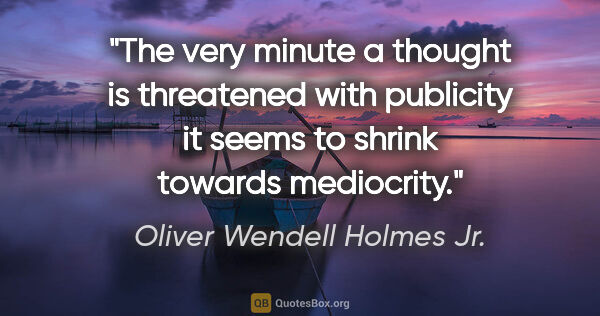Public Quotes (page 45)


The reporters who came to the press conference in theoffice of the John Galt Line were young men who hadbeen trained to think that their job consisted ofconcealing from the world the nature of its events. It was their daily duty to serve as audience for somepublic figure who made utterances about the public good, in phrases carefully chosen to convey no meaning. It was their daily job to sling words together in anycombination they pleased, so long as the words did notfall into a sequence...
Ayn Rand
Why you fool, it's the educated reader who CAN be gulled. All our difficulty comes with the others. When did you meet a workman who believes the papers? He takes it for granted that they're all propaganda and skips the leading articles. He buys his paper for the football results and the little paragraphs about girls falling out of windows and corpses found in Mayfair flats. He is our problem. We have to recondition him. But the educated public, the people who read the high-brow weeklies,...
C. S. Lewis
Necessary policemen, firemen, street cleaners, health officers, judges, legislators and executives perform productive services as important as those of anyone in private industry. They make it possible for private industry to function in an atmosphere of law, order, freedom and peace. But their justification consists in the utility of their services. It does not consist in the "purchasing power" they possess by virtue of being on the public payroll.
Henry Hazlitt
the only way clear of the cool/crazy flipflop was obviously slow, frustrating and hard work. Love with your mouth shut, help without breaking your ass or publicizing it: keep cool, but care. He might have known, if he'd used any common sense. It didn't come as a revelation, only something he'd as soon not've admitted.
Thomas Pynchon
Visiting America in the early nineteenth century, Alexis de Tocqueville observd that 'the sects that exist in the United States are innumerable,' and yet 'all sects preach the same moral law in the name of God.' Tocqueville termed religion the first of America's political institutions, which means that it had a profoundly public effect in regulating morality and mores throughout the society. And he saw Christianity as countering the powerful human instincts of selfishness and ambition by...
Dinesh D'Souza

